| KEYNOTE SPEAKERS |
| Tilte:A FRESH LOOK AT AN OLD PROBLEM: NETWORK UTILITY MAXIMIZATION-CONVERGENCE, DELAY, AND COMPLEXITY |
| Ness B. Shroff, IEEE Fellow, Professor, The Ohio State University, USA |
| Editor in Chief, IEEE/ACM Transactions on Networking |
| Abstract |
|
Network Utility Maximization has been studied for resource allocation problems in communication networks for nearly two decades. Nonetheless, a major challenge that continues to remain open is how to develop a distributed congestion control and routing algorithm that can simultaneously provide utility optimality, fast convergence speed, and low delay. To address this challenge we take a fresh perspective on this old problem and develop a new algorithm that offers the fastest known convergence speed, vanishing utility optimality gap with finite queue length, and low routing complexity. |
| Biography |
|
Ness Shroff received the Ph.D. degree in electrical engineering from Columbia University in 1994. He joined Purdue University immediately thereafter as an Assistant Professor with the School of Electrical and Computer Engineering. At Purdue, he became a Full Professor of ECE and the director of a university-wide center on wireless systems and applications in 2004. In 2007, he joined The Ohio State University, where he holds the Ohio Eminent Scholar Endowed Chair in networking and communications, in the departments of ECE and CSE. He holds or has held visiting (chaired) professor positions at Tsinghua University, Beijing, China, Shanghai Jiaotong University, Shanghai, China, and IIT Bombay, Mumbai, India. He has received numerous best paper awards for his research and is listed in Thomson Reuters on The World's Most Influential Scientific Minds, and has been noted as a Highly Cited Researcher by Thomson Reuters in 2014 and 2015. He currently serves as the steering committee chair for ACM Mobihoc and Editor in Chief of the IEEE/ACM Transactions on Networking. He received the IEEE INFOCOM Achievement Award for seminal contributions to scheduling and resource allocation in wireless networks. |
| Title: A Vision towards Pervasive Edge Computing |
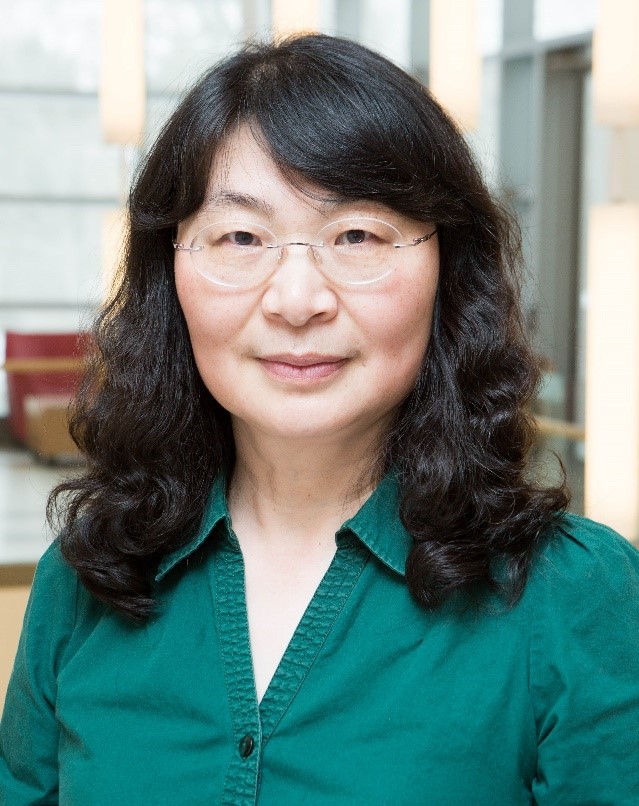 |
| Yuanyuan Yang, IEEE Fellow, Professor, Stony Brook University, USA |
| Editor in Chief, IEEE Transactions on Cloud Computing |
| Abstract |
|
This talk presents an emerging pervasive edge computing paradigm where heterogeneous edge devices (e.g., smartphones, tablets, IoT and vehicles) can collaborate to sense, process data and create many novel applications at network edge. We propose a data centric design where data become self-sufficient entities that are stored, referenced independently from their producers. This enables us to design efficient and robust data discovery, retrieval and caching mechanisms. We also consider secure data caching by applying blockchain technology to the edge, and architecture support for edge nodes by FPGA to combat the heterogeneity among edge nodes. The future research agenda including scalable data discovery, cache management, autonomous processing, trust, security and privacy, incentives and semantic data naming) will be discussed. |
| Biography |
|
Yuanyuan Yang received the BEng and MS degrees in computer science and engineering from Tsinghua University, Beijing, China, and the MSE and PhD degrees in computer science from Johns Hopkins University, Baltimore, Maryland, USA. Dr. Yang is a SUNY Distinguished Professor in the Department of Electrical & Computer Engineering and Department of Computer Science at Stony Brook University, New York, USA. She is currently on leave serving as a Program Director at the US National Science Foundation. She has served as the Associate Dean for Academic Affairs of College of Engineering and Applied Sciences at Stony Brook University and a Division Director of New York State Center of Excellence in Wireless and Information Technology. Dr. Yang is internationally recognized for her contributions in parallel & distributed computer architectures and systems. She was named an IEEE Fellow in 2009 for contributions to parallel and distributed computing. Her current research interests include parallel computer architecture, network-based computing, cloud computing, edge computing and mobile computing. She has published over 460 scientific papers in leading refereed journals and conferences. Dr. Yang is currently the Editor-in-Chief for IEEE Transactions on Cloud Computing and an Associate Editor for ACM Computing Surveys and IEEE Transactions on Parallel and Distributed Systems. She has served as the Associated Editor-in-Chief for IEEE Transactions on Computers and IEEE Transactions on Cloud Computing, and an Associated Editor for IEEE Transactions on Computers and IEEE Transactions on Parallel and Distributed Systems. |
| Title: Incentive Mechanism Design for Crowd Systems |
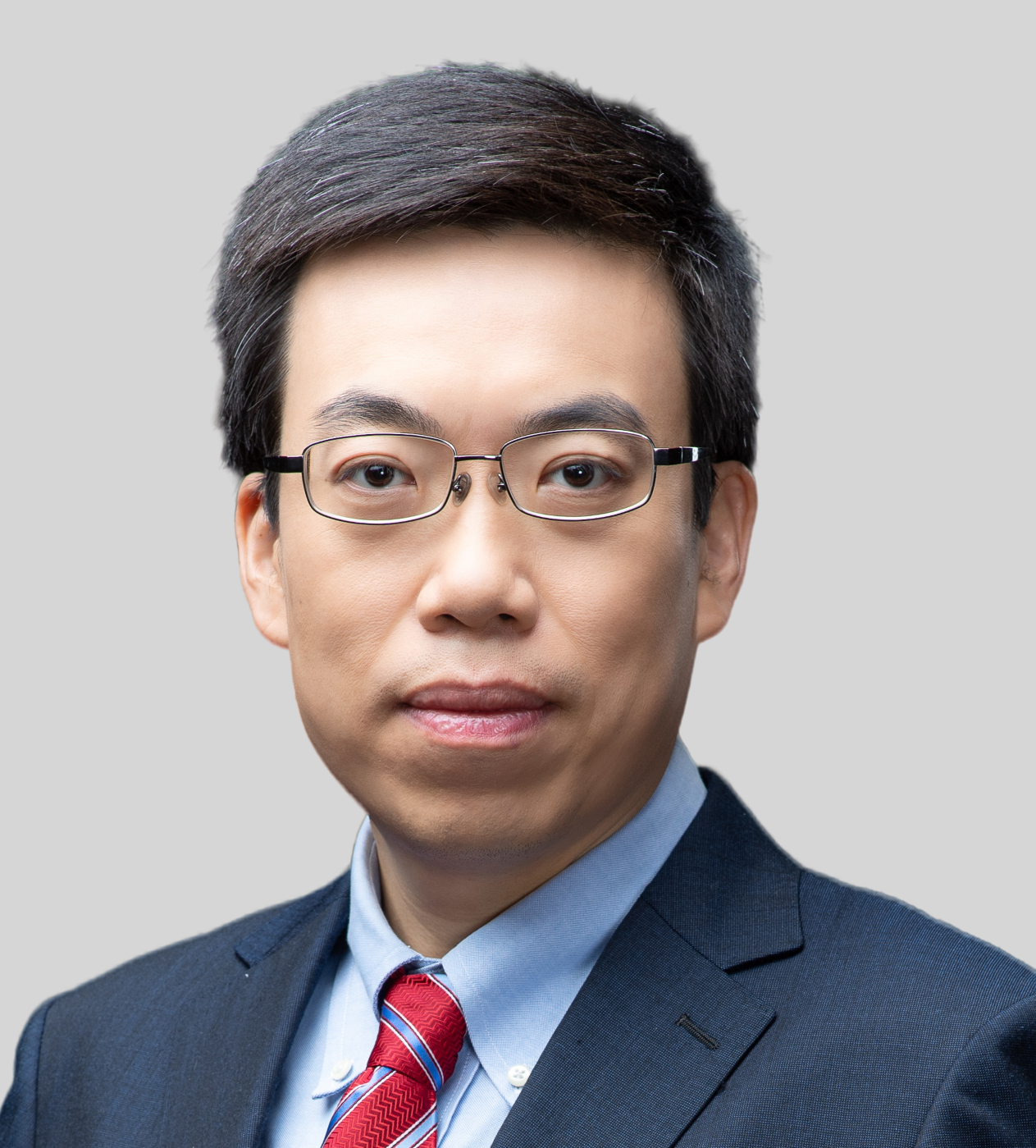 |
| Jianwei Huang, IEEE Fellow, Professor, The Chinese University of Hong Kong, China |
| Editor in Chief, IEEE Transactions on Network Science and Engineering |
| Abstract |
|
Crowd systems can help solve complicated problems through the coordinated behaviors of many non-expert agents. A key to success is to incentivize enough agents to participate and exert efforts. We will introduce the challenges and opportunities of incentive mechanism designs in diverse types of crowd systems. |
| Biography |
|
Jianwei Huang is a Presidential Chair Professor and the Associate Dean of the School of Science and Engineering, The Chinese University of Hong Kong, Shenzhen. He is also the Vice President of Shenzhen Institute of Artificial Intelligence and Robotics for Society. He received the Ph.D. degree from Northwestern University in 2005, and worked as a Postdoc Research Associate at Princeton University during 2005-2007. He has been an IEEE Fellow, a Distinguished Lecturer of IEEE Communications Society, a Clarivate Analytics Highly Cited Researcher in Computer Science, and Associate Editor-in-Chief of IEEE Open Journal of the Communications Society. He is the Editor-in-Chief of IEEE Transactions on Network Science and Engineering.Dr. Huang has published more than 290 papers in leading international journals and conferences in the area of network optimization and economics, with a total Google Scholar citations of 12,800+ and an H-index of 58. He is the co-author of 9 Best Paper Awards, including IEEE Marconi Prize Paper Award in Wireless Communications in 2011. He has co-authored seven books, including the textbook on "Wireless Network Pricing." He received the CUHK Young Researcher Award in 2014 and IEEE ComSoc Asia-Pacific Outstanding Young Researcher Award in 2009. He has served as an Associate Editor of IEEE Transactions on Mobile Computing, IEEE/ACM Transactions on Networking, IEEE Transactions on Network Science and Engineering, IEEE Transactions on Wireless Communications, IEEE Journal on Selected Areas in Communications - Cognitive Radio Series, and IEEE Transactions on Cognitive Communications and Networking. He has served as the Chair of IEEE ComSoc Cognitive Network Technical Committee and Multimedia Communications Technical Committee. He is the recipient of IEEE ComSoc Multimedia Communications Technical Committee Distinguished Service Award in 2015 and IEEE GLOBECOM Outstanding Service Award in 2010. More detailed information can be found at https://sse.cuhk.edu.cn/en/faculty/huangjianwei. |
| Title: Blockchain Security and Consensus Protocols |
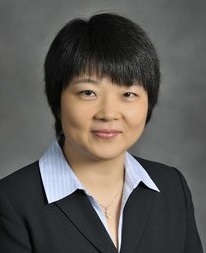 |
| Wenjing Lou, IEEE Fellow, Professor, Virginia Tech, USA |
| Steering Committee Member, IEEE INFOCOM , IEEE Transactions on Mobile Computing. |
| Abstract |
|
Blockchain, the technology behind Bitcoin, has emerged as a "secure by design" technology, enabling a wide range of decentralized secure applications across a broad range of industries. The security of blockchain largely depends on the underlying consensus protocol that ensures the consistency of the many blockchain replicas. In this talk, we will focus on the proof-of-work (PoW) blockchain consensus protocols and examine some fundamental security properties and performance limits of blockchain. We also show how some factors, such as mining strategy and network connectivity, can impact blockchain's fundamental 50% threshold security assumption. |
| Biography |
|
Wenjing Lou is the W. C. English Endowed Professor of Computer Science at Virginia Tech and a Fellow of the IEEE. She holds a Ph.D. in Electrical and Computer Engineering from the University of Florida. Her research interests cover many topics in the cybersecurity field, with her current research interest focusing on wireless networks, privacy protection in machine learning systems, and security and privacy problems in the Internet of Things (IoT) systems. Prof. Lou is a highly cited researcher by the Web of Science Group. She received the Virginia Tech Alumni Award for Research Excellence in 2018, the highest university-level faculty research award. She received the INFOCOM Test-of-Time paper award in 2020. She is the TPC chair for IEEE INFOCOM 2019 and ACM WiSec 2020. She was the Steering Committee Chair for IEEE CNS conference from 2013 to 2020. She is currently a steering committee member of IEEE INFOCOM and IEEE Transactions on Mobile Computing. She served as a program director at US National Science Foundation (NSF) from 2014 to 2017. |
| Title: IoT for Smart and Connected Health |
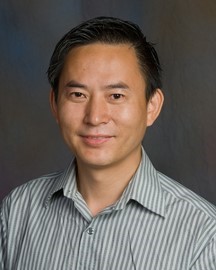 |
| Honggang Wang, IEEE Fellow, Professor, UMass Dartmouth, USA |
| Editor in Chief, IEEE Internet of Things journal |
| Abstract |
|
Smart and Connected Health (SCH) is the use of Internet, sensing, communications and intelligent techniques in support of healthcare applications. Internet of Things (IoT) systems such as Wireless body area network (WBAN) system with various types of biomedical sensors is one of key infrastructures of SCH and provide an opportunity to address issues in rapidly increasing mHealth/eHealth applications. However, there are significant challenges in this area, such as improving the performance of WBANs, analytics of large and continuous physiological data collected from biomedical sensors and predictive modeling, and securing data transmission and protecting data privacy, especially in mobile and wireless environments. In this talk, I will present the research trends, challenges and potential IoT solutions in the related areas including the introduction of two case studies: (1) developing a wearable biosensor system for the remote detection of life threatening events in infants; (2) a security system to support reliable and secured data transmissions over WBANs. |
| Biography |
|
Honggang Wang is a professor of Electrical and Computer Engineering at UMass Dartmouth. His research interests include Internet of Things (IoT), Wireless Health, Body Area Networks (BAN), Cyber and Multimedia Security, Mobile Multimedia and Cloud, Wireless Networks and Cyber-physical System, and BIG DATA in mHealth. He has published more than 200 papers in his research areas. He was an invited participant by National Academic Engineering (NAE) for 2017 German-American Frontiers of Engineering Symposium, as one of about 50 outstanding young engineers from US companies, universities, and government labs. He serves as the steering committee Co-chair of IEEE conference on Connected Health (CHASE) and TPC co-chair of IEEE CHASE 2016, which is a leading international conference in the field of connected health. He has also been serving as the Editor in Chief (EiC) for IEEE Internet of Things journal since 2020, and Associate Editors for IEEE Transactions on Big Data and IEEE Transactions on Circuits and Systems for Video Technology. He was the past Chair (2018-2020) of IEEE Multimedia Communications Technical Committee and is the Chair of IEEE eHealth Committee (2020-2021). He is an IEEE Distinguished Lecturer (ComSoc, 2019-2020) and an IEEE Fellow. |
| Title: Exploring the Power of SmartIoT: IoT Security and WiFi-enabled Healthcare |
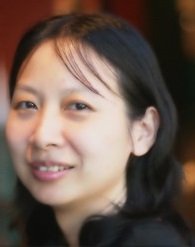 |
| Yingying Chen, IEEE Fellow, Professor, Rutgers University, USA |
| Editorial board, IEEE Transactions on Mobile Computing, IEEE/ACM Transactions on Networking |
| Abstract |
|
With the advancement of mobile sensing and Internet of Things, extensive research is being carried out in various application domains of IoT including smart city, smart healthcare, connected vehicles, and their security issues. The research work explores the power of smartIoT to benefit people's daily lives and make impacts on the society advancement, especially in two emerging areas: IoT security and WiFi-enabled healthcare. In particular, we study how to conduct user authentication on any solid surface for IoT applications and how to perform vital signs monitoring during sleep towards smart healthcare. The first part of my talk introduces the idea of extending user authentication beyond traditional touch screens to any solid surface for smart access systems (e.g., access to apartments, vehicles or smart homes). The system builds upon a touch sensing technique with vibration signals that can operate on surfaces constructed from a broad range of materials. It integrates passcode, behavioral and physiological characteristics, and surface dependency together to provide enhanced security for many IoT applications. The second part of my talk describes how to track human vital signs during sleep, which serve as critical inputs for assessing the general physical health of a person and providing useful clues for diagnosing possible diseases. Our system reuses existing WiFi network for tracking vital signs of breathing and heart rates concurrently without dedicated/wearable sensors or additional wireless infrastructure (e.g., USRP). The system exploits the fine-grained channel state information of WiFi signals to capture the minute body movements caused by breathing and heartbeats. The proposed system thus has the potential to be widely deployed in home environments and perform continuous long-term monitoring at a low-cost. Finally, I will share with you some new research directions with the aim of influencing the future of smart homes and smart cities. |
| Biography |
|
Yingying (Jennifer) Chen is a Professor of Electrical and Computer Engineering and Peter Cherasia Endowed Faculty Scholar at Rutgers University. She is the Associate Director of Wireless Information Network Laboratory (WINLAB). She also leads the Data Analysis and Information Security (DAISY) Lab. She is an IEEE Fellow. Her research interests include mobile sensing and computing, cyber security and privacy, Internet of Things, and smart healthcare. Her background is a combination of Computer Science, Computer Engineering and Physics. She had extensive industry experiences at Nokia previously. She has published 200+ journal articles and conference papers. She is the recipient of multiple Best Paper Awards from EAI HealthyIoT 2019, IEEE CNS 2018, IEEE SECON 2017, ACM AsiaCCS 2016, IEEE CNS 2014 and ACM MobiCom 2011. She is also the recipient of NSF CAREER Award and Google Faculty Research Award. She received NJ Inventors Hall of Fame Innovator Award and is also the recipient of IEEE Region 1 Technological Innovation in Academic Award. Her research has been reported in numerous media outlets including MIT Technology Review, CNN, Fox News Channel, Wall Street Journal, National Public Radio and IEEE Spectrum. She has been serving/served on the editorial boards of IEEE Transactions on Mobile Computing (IEEE TMC), IEEE Transactions on Wireless Communications (IEEE TWireless), IEEE/ACM Transactions on Networking (IEEE/ACM ToN) and ACM Transactions on Privacy and Security. For more information, please refer to http://www.winlab.rutgers.edu/~yychen/. |
Created and Maintained by IEEE SmartIoT2021
